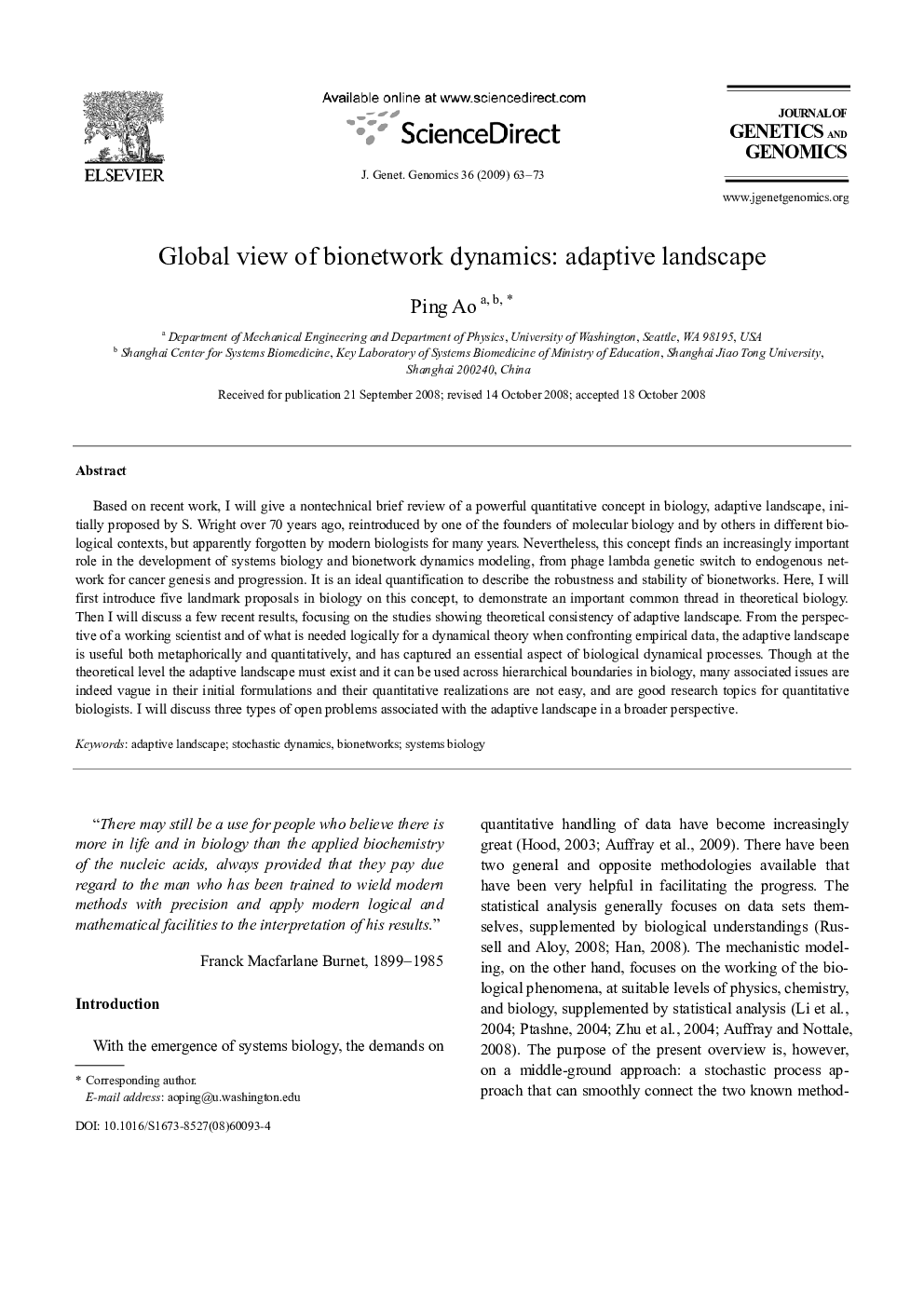| Article ID | Journal | Published Year | Pages | File Type |
|---|---|---|---|---|
| 2787813 | Journal of Genetics and Genomics | 2009 | 11 Pages |
Based on recent work, I will give a nontechnical brief review of a powerful quantitative concept in biology, adaptive landscape, initially proposed by S. Wright over 70 years ago, reintroduced by one of the founders of molecular biology and by others in different biological contexts, but apparently forgotten by modern biologists for many years. Nevertheless, this concept finds an increasingly important role in the development of systems biology and bionetwork dynamics modeling, from phage lambda genetic switch to endogenous network for cancer genesis and progression. It is an ideal quantification to describe the robustness and stability of bionetworks. Here, I will first introduce five landmark proposals in biology on this concept, to demonstrate an important common thread in theoretical biology. Then I will discuss a few recent results, focusing on the studies showing theoretical consistency of adaptive landscape. From the perspective of a working scientist and of what is needed logically for a dynamical theory when confronting empirical data, the adaptive landscape is useful both metaphorically and quantitatively, and has captured an essential aspect of biological dynamical processes. Though at the theoretical level the adaptive landscape must exist and it can be used across hierarchical boundaries in biology, many associated issues are indeed vague in their initial formulations and their quantitative realizations are not easy, and are good research topics for quantitative biologists. I will discuss three types of open problems associated with the adaptive landscape in a broader perspective.
